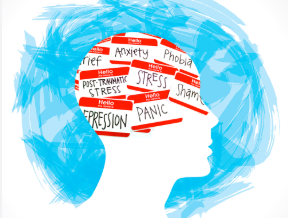In recent years, mental health has been a significant societal challenge, especially among younger generations. Having high rates of anxiety, depression, and stress-related disorders. Generation Z and millennials are particularly affected, facing unique pressures that differ from those experienced by previous generations.
The Landscape of Mental Health Today:
Research suggests that young people today are experiencing higher mental health struggles than earlier generations. Studies indicate millennials and Gen Z are more likely to report feelings of sadness, hopelessness, and anxiety.
Social Media and Technology:
Social media platforms have significantly changed how we communicate, connect, and form relationships. Although many platforms help people explore and connect with others, it has also been a huge factor in negative mental health outcomes. Especially among younger generations; correlating increased feelings of loneliness, depression, and anxiety. Having a constant comparison to other people’s lives can cause us to feel upset, or sad about how our lives are. Feeling like it doesn’t measure up to a “standard.” This can end up causing more stress-related disorders.
Academic and Career Pressures:
The modern emphasis on academic excellence and career success can also be detrimental to mental health. Students and young professionals today often feel the need to stand out and be over-achieving. Trying to encourage overworking and constant achievement can lead to major burnout, stress overload, and poor mental health. Especially for younger people who are still trying to navigate their expectations of their families and societies while still managing their desires and personal well-being.
Stigma and Lack of Support:
Although there is an increase in awareness of mental health issues, stigma remains a barrier to seeking help. Many young people still face societal pressures that discourage open discussion about mental health, often scared, embarrassed, judged, or rejected by others. Sadly, there is still a lack of support and understanding of these issues. Causing many young people to feel even more challenged to talk about their issues.
The Impact on the Generation:
Poor mental health can also affect a person’s workplace productivity and overall life satisfaction. Specifically, poor mental health can affect a person’s workplace productivity and overall life satisfaction. Depression and anxiety can impair cognitive functioning, lower self-esteem, and increase the risk of substance abuse and self-harm.
Conclusion:
All in all, the mental health of the current generation requires much more attention in our society. Understanding the issues and concerns, and the leading factors of mental health is important for us and for our community. Learning about this can help our overall mental state and also help spread more awareness to others, so they can hopefully get better. This will help future generations and help more people understand the seriousness of mental health in general.


